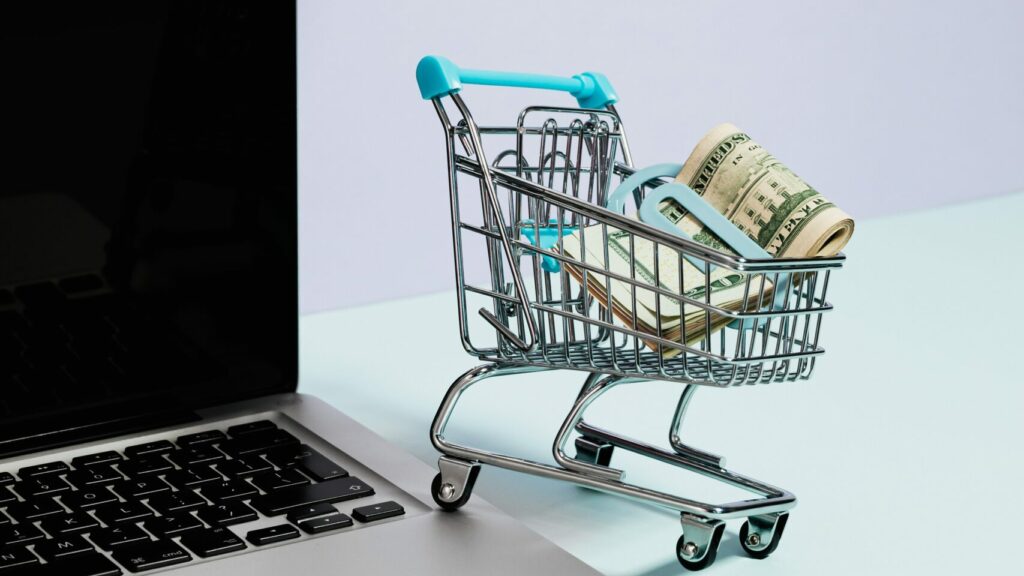Facebook Marketplace is a wonderful platform and safe for its members to advertise and sell their products without anyone being charged bloodsucking prices and fees, as other marketplaces do. Additionally, it’s the ideal place for anyone searching for great deals to purchase used and the latest goods. Bargain hunters are also interestingly growing on the platform to buy second-hand products at their assumed lowest prices. However, with the arrival of the Cash App, the Facebook Marketplace has turned into a shelter for scam artists. I will expose how scammers steal merchants’ hard-earned money through the platform’s Cash App in this post. I’ll then discuss several strategies you may use to avoid falling subject to any of these scammers. But first, let me describe the question, “What is the Cash App scam in Facebook marketplace?” Let’s begin.
What is the Cash App Scam in Facebook Marketplace?
With the help of the well-known payment processor Cash App, you may send and receive money from loved ones promptly. It has gradually evolved into a practical solution for both accepting money and conducting business. However, many scammers are now employing it as a platform to defraud internet buyers and merchants alike. Cash App fraudsters specifically target merchants and sellers who advertise and enlist pricey and premium things. If you think you don’t fall into the category, let me tell you, scammers do not exclude sellers of basic and cheaper items from their operations. Now that we know what is the Cash App doing on the Facebook Marketplace, let’s explore some of the Cash App scams that may keep you safe while making or receiving a payment. Kindly do not assume the Cash App platform in itself is a fraud. No, it is not like that. It is one of the most genuine and legit payment processors on the market. However, there are some leaks that all scammers to scam people. Also, read How to Visit Facebook Marketplace Without Facebook Account?
The Cash App Scammers: How Do They Operate?
On the Facebook Marketplace, a scammer acting like a normal buyer will want to buy something from you if you have listed a product on it. They will then ask to use the Cash App to pay for the item. You won’t smell any wrong in it, no one else would either as the widely used Cash App payment gateway enables quick transactions for thousands and millions of people worldwide. Some scam buyers will offer you to pay more than what you have recorded in the price segment in order to make it difficult for you, as a seller, to refuse the transaction. Their offers are simply too fantastic for you to pass up. The con artist will ask you to send them photos of the product you’ve enlisted on Facebook to sell so they can seem to you as a serious and legitimate buyer. Then after, they will ask for your email address to confirm their transaction. They could even devise another ruse to tempt you towards giving them the email address that you are using to log in to the Cash App. Once the deal is ready to be done, they will tell you they have transferred you the amount. They will email you screenshots or the messages you think are sent to them by the Cash App servers. But, those emails and screenshots are all spoofed up to deceive you. Let’s see how to identify a buyer who is actually a scammer. The scammers disguise themselves as real and authentic sellers and adapt new tools and behaviours to cheat the sellers. Fortunately, they leave one or the other impression that if identified on time will save you from their tempting offers and words. Also, read How to Poke People on Facebook | Use These 7 Steps to Use the Feature
How to Identify Cash App Scam in Facebook Marketplace?
Nevertheless, the fact is that scammers are all over the Facebook Marketplace, but it is indeed fairly uncomplicated to identify as well as dodge them. Here are a few typical indicators that you’re not dealing with a genuine buyer, but a suspected scammer is holding their horses to scam you.
- The email they will send you will have sufficient pieces of evidence of their fakeness. Here are a few tips to identify a fake email from a scammer: a. The email comes from private communications sent ending with @yahoo.com, @gmail.com, @icloud.com and more b. The email is empty of your name or any other personally identifiable information. c. The email’s layout is too simple and odd. d. The email will consist of a number of grammatical errors e. With the wrong capitalization, you will see all letters of some words in caps. f. Incorrect punctuation marks and flooded with Exclamation Marks (!). g. They attempt to pressure you into acting quickly. Also, read How to See Facebook Memories: A Detailed Guide for 2022
- Their Facebook profiles are new. You usually won’t find a scammer’s Facebook page older than a year.
- Not just new, their Facebook profiles are fake. You can identify a fake profile from its cover and profile photo. Scammers usually use photos downloaded from image websites — Pinterest, Stock Images, Google Images and more.
- They will force you to send the product by mail. As they won’t meet you in person. They will avoid it if you tell them to take the product from your home or store.
- They will pretend that they only use a certain third-party payment app — like Cash App — to make you accept the payment, which actually, is never received.
- Scammers will offer you to pay more than you have mentioned. They usually don’t bargain. In some cases, to pretend as a real buyer, they do bargain but that is very rare. Also, read Can You Delete Facebook & Keep Messenger?
How to Prevent Cash App Scam in Facebook Marketplace?
Yes, Cash App is a secured payment app. However, it is better to use payment apps that are supported by Facebook. Currently, in the US, Facebook Marketplace supports payment methods that are done via Facebook Cashout or PayPal. And even if you are accepting payments from another app, visit the app or call its support (if you cannot view the payment) and check with your bank if you have received the amount in reality. Do not mail your product until you receive payment. Also, read How To Know If Someone Unfollowed You On Facebook?
Wrapping Up
You now know what is the Cash App scam in Facebook Marketplace. I do recommend extending and applying this write-up to all payment-making apps, be it supported or not supported by the Facebook Market place. It is not limited to Cash App, scammers, you cannot imagine, are among us. They know all about their negatives and weakness. They know how to trap a seller and how to make them believe that they are not scammers but real buyers. The only tip I would love to share is “Check if you have received a payment before packing and transiting your product” and “Don’t give your personal details — registered email IDs, credit and debit card, OTPs or passwords — to anyone, no matter who they are.” Do let me know if you know a person who was scammed on Facebook Marketplace and how. Share your stories, ideas and reviews in the comment box below. I love reading them and replying to them is my favorite part.
Δ





